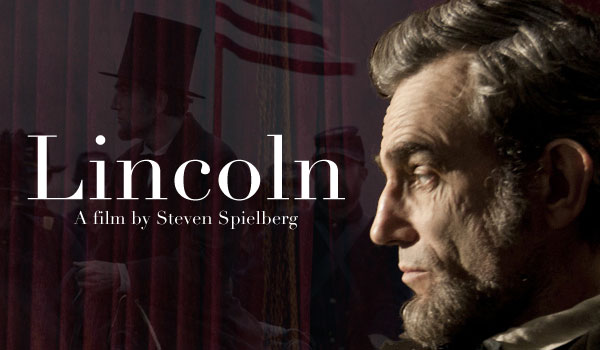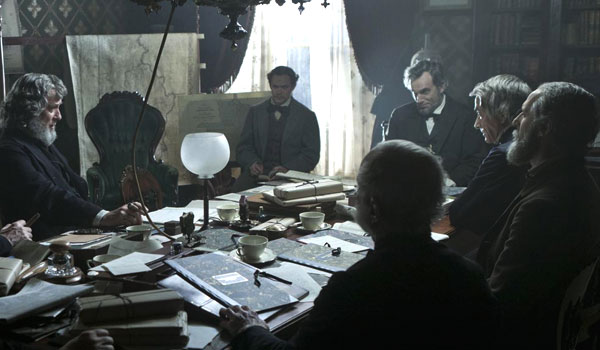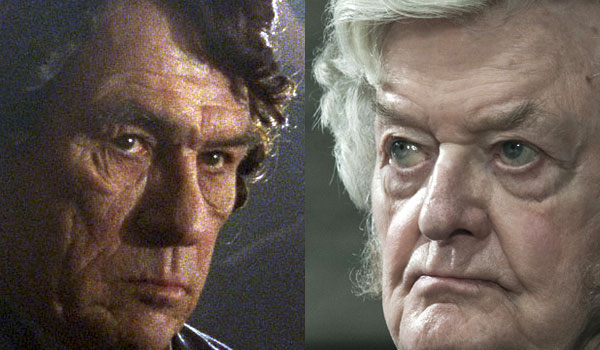Movie Review: Lincoln
Review by Hal Goodtree. Photos from thelincolnmovie.com.
Cary, NC – Lincoln, the new movie by Steven Spielberg, is a very good film. Could be the Best Picture of the Year. But it’s not Schindler’s List.
Who Likes Lincoln?
“Who likes Lincoln?” That’s a very funny headline here in the South. But the theater was semi-full on Friday night.
Probably Yankees.
Actually, the list of people who might like this film is quite long. I’d include people who enjoy:
- Adult drama
- Epics
- History
- Civil War buffs
- Great Actors
- Hate vampire movies
January 1865
The majority of the film takes place in January of 1865. Lincoln (Daniel Day-Lewis) is working with Secretary of State William Seward (David Strathairn) to pass the 13th amendment, prohibiting slavery in the United States.
What about the Emancipation Proclamation, you say? Lincoln issued that under the War Powers Act. When those powers expired at the end of the war, the Proclamation could be challenged in court. By changing the Constitution, Lincoln could end the question of slavery once and for all.
So, the main arc of the movie is a chess game, as Lincoln and Seward try to persuade, coerce and even subvert a divided House of Representatives to pass the amendment.
Day-Lewis as Lincoln
Daniel Day-Lewis, as Lincoln, is the main attraction of the movie. Almost 150 years after his death, we remain fascinated by Lincoln. And this is a “keyhole” movie, peering into the personal scenes behind the story.
Lewis is utterly believable as Lincoln. Not that we actually know Lincoln. But Day-Lewis animates the characteristics we know about Honest Abe into a convincing portrait – the stooped shamble, his tenderness toward his son Tad. His political, horse-trading acumen. His iron will. His moral conviction. His air of sadness. His absence of bitterness. His insomnia. His often inappropriate but always hilarious sense of humor.
Go see this movie just for Lincoln’s story about Ethan Allen and the portrait of George Washington.
The Lincoln recreated by Daniel Day-Lewis is a man, not a marble statue. 150 years later, we still have a deep desire to know Abraham Lincoln.
Sally Field as Mary Todd Lincoln
David Strathairn gets plenty of screen time and does a great job as William Seward, but it’s Sally Field as Mary Lincoln who steals the side light.
It’s her portrait of the woman more than her place in the plot that drives the fascination. Field truly inhabits the character, making sense of the tidbits we know – the question of her “madness,” her relationship with African-American companion Elizabeth Keckley (played by Gloria Reuben), her fear and her weakness.
Holbrook and Jones
Also notable in the cast are Hal Holbrook as Preston Blair and Tommy Lee Jones as Senator Thaddeus Stevens.
It’s just a pleasure to see Holbrook, 88 on his next birthday, still working in front of the camera.
Jones gets to play the over-the-top Thaddeus Stevens, a radical Republican who has to tone it down to get something done. A lot of make-up went into his portrayal, but it’s welcome relief from the stress of the White House.
Inside the White House
Much of the movie takes place inside the White House of 1865. It is a messy, unruly, dark and drafty place.
The production design will undoubtedly be nominated for many awards. It’s worth seeing the movie twice just to check out the details of the vividly recreated Civil War era White House.
Spielberg at the Helm
This movie is everything we expect from one of America’s foremost directors – good story, great performances, beautiful production.
As Spielberg has matured, he’s moved away from too-obviously manipulating audiences. The schmaltzy music only makes an appearance toward the end.
Still, Lincoln is no Schindler’s List. Maybe it’s the complexity of the story – parliamentary rules and subplots involving secret negotiations with the Confederates – that make the story a little unwieldy. Lincoln doesn’t have the simple dramatic arc of Schindler.
Nonetheless, Lincoln is an epic movie in all ways, a worthy contender for Best Picture. See it on the big screen.
———————————————————————————
Hal Goodtree, a former television producer, thinks he knows everything about movies.







—-A 6th? —7th? Lincoln and AGAIN with Sally Field?
—-and played by a foreigner —-during this, the 11th
hour of POST American –Global banking takedown?
And so Spielberg remains the supreme purveyor of
on cue, ‘on board’ predictive programming and PC moral
alibis for the unfolding ‘agenda’.
Surely, in 2012, the —ONLY— urgently relevant aspect
of Lincoln yet to be treated, or even mentioned, by Hollywood
and media was his very possibly ——FATAL——- diss
of the Global banking syndicate over finance of the war.
Spielberg’s timing with this —also, is even creepier than
his PC guilt trippy ‘Empire of the Sun’ that was used to
‘perception manage’ things during the heyday of the
RED China handover op –and round about the time of
the ————TIENNAMEN MASSACRE————-.
BEWARE ——-Look around you ———-BEWARE!
Don’t go off the deep end on us, Hip Op. Surely, Spielberg is more concerned with box office and Oscar than political considerations.
Oliver Stone – he’s political. Michael Moore – political. Spielberg? Commercial.
BTW – Chaplin was a foreigner. Cary Grant was a foreigner. So was the Marquis de Lafayette.
[“Lincoln doesn’t have the simple dramatic arc of Schindler.”]
That is because “LINCOLN” is a completely different tale than “SCHINDLER’S LIST”. That is why it is more complex, but not unwieldy.
The Civil War is the American singularity having precedence before the Revolutionary War and a resonance through the assasinations of the nineteen-sixties and beyond the present day with self-righteousness and vengeance as its principle emergent properties.